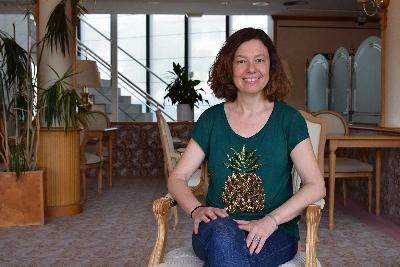Collective residencies / INNOVACIÓ PEDAGÒGICA / Olot
ESTHER BELVIS
From Friday, 27 April 2018 to Saturday, 28 April 2018
Bio
PhD in Performing Arts from the University of Warwick (2012) and graduate in Pedagogy from the UAB. She is an MA lecturer in Cultural Management from the UOC and an MA in Cultural Management from the UIC. She is a member of Artea, an association that brings together researchers and artists with the aim of promoting research in the performing arts and with which he has curated various events at the MNCARS. He has collaborated with firms such as Stan’s Café (UK), Rimini Protokoll (Germany) or Roger Bernat (Cat). Her project installation “Performing Home” produced by Jiwar Creació i Societat was selected as an example of good social artistic practice and included in the report Creation and Displacement: Developing new narratives around Migration (ITEM- *Culture Action Europe, 2016). In 2018, the creative project “Hack the School”, financed by the Bofill Foundation and developed together with the architect Silvia Sasot, won the City of Barcelona Design Award.
Project
During the stay at Faber the artist-educator Esther Belvis, the psychologist-neuroscientist Marta Portero and the architect-designer Silvia Sasot, together with the Child Centered Kit: tools to promote self-development. Designed for children of Primary school (6-11 years old), the kit will be a tool that in a playful way, through active dynamics and creative strategies, connect with their experiences in and out of school, and empower them in the consciousness of themselves and their environment.
Child’s perspective: The kit aims to help children get to know and playfully recognize themselves in a playful way. It is a fun game to verbalize who she/he is, how she/he learns, what she/he is interested in and establish conversations that she/he empowers with the adults who accompany her/him in her/his growth and development process.
Teachers’ perspective: The kit helps teachers identify individual singularities and differences with their own voice, and go beyond their own gaze. It facilitates the visualization of the diversity and the potentialities present in the group with the aim of promoting inclusion.
Family perspective: The kit allows families to be more closely linked to their children’s school experiences and to participate equitably in accompanying their child in relation to academic aspects and to expand their capacity for action in personal aspects.

